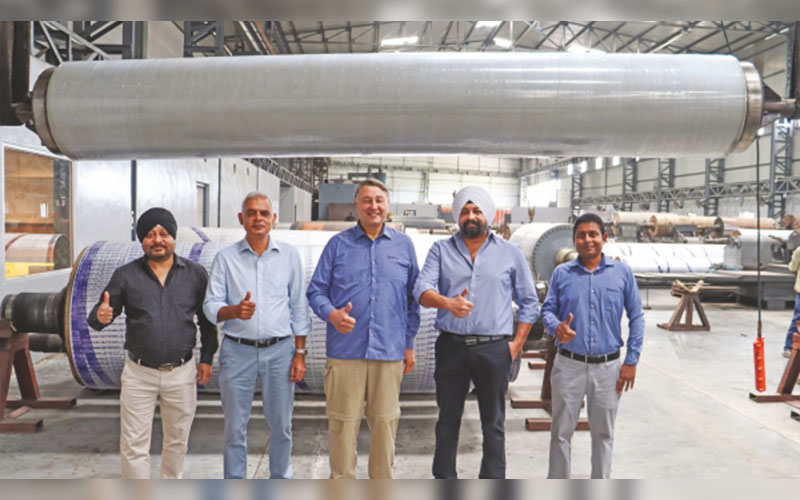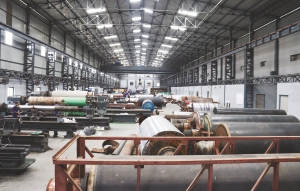
Zenith Rubber, total solution provider for roller refurbishing, manufactures rollers for the paper industry based on parameters like application, chemistry, speed, temperature, pressure, roll geometry, deflection, balance & coefficient of friction. Zenith today has its own 20 manufacturing facilities at diversified strategic locations in India and abroad, with a production capacity of staggering 3000 rollers per day spread out in a total area of about 200, 000 sq. meters. The Indian paper industry is undergoing a phase of innovations, with new technologies frequently emerging to elevate the sector. In a recent interaction with Paper Mart, Mr. PS Paintal, Managing Director, Zenith Rubber Private Limited & Dr. Benno Bader, Technical Director, Zenith Rubber Private Limited and Founder, Skapa e.U., shared about the new indigenously made composite roller cover. The innovation boasts superior properties compared to existing hard covers, resulting in enhanced paper quality, decreased maintenance cost of the machines and lower paper price.
Watch: JMC Paper Tech Launches New Subsidiary JMC Papers
Paper Mart: What is the chemistry behind your recently launched composite cover and what are its main application areas?
Benno Bader: The composite cover is made of fiber reinforced high performance epoxy resin. The composite cover is made mainly to replace hard covers, and not to replace polyurethane or soft rubber covers. Additionally the composite cover can be used to replace covers made for ceramic, ebonite rollers wherever high abrasion and high hardness is required.
Application areas vary depending on roller type. For example, in calendar rollers, where there is no competent cover available in the market, the composite cover becomes essential. The composite cover can also be used for hard press rolls, wire rolls, size press rolls.
PM: What are the benefits and advantages of composite cover to the paper mills?

BB: The composite cover offers a higher grinding interval compared to paper filled covers resulting in longer lifespan. The composite cover provides better uniformity enhancing paper quality and preventing overpressing of the paper. The composite cover possesses the strengths necessary to withstand accidents without exploding or damaging the machine’s other parts.
In press rolls, the composite cover features adjustable repellent properties due to special fillers and better sheet release contributing to improved paper quality.
Repair options are available for damaged composite cover, with patching or local repair depending on the extent of the damage.
PM: What was the major idea behind this new technology of composite cover?
PS Paintal: The major idea was to boost “Make in India”. Many big roller groups were importing these covers where they had to pay high duties and wait for 6 to 7 months or even 1 year for the delivery. Whereas Zenith makes the composite cover indigenously, so the big groups do not have to pay any duty and the delivery time is also 4 weeks. So the big groups are saving time and saving money as well.
Also Read: Scan Machineries’ ‘Passion for Paper’ Drives R&D & New Projects towards Sustainability
PM: Which other industries does the composite cover cater to and what is the lifespan of these roller covers?
PSP: The composite cover is exclusively intended for the paper industry. Its unique properties and compositions are optimized for the requirements and challenges faced in paper mills.
The longevity of the composite cover depends on various factors. These factors include the specific type of roller being used, frequency of grinding intervals. Generally, the composite cover has a longer lifespan compared to the other covers.
PM: What is the acceptance rate of your new launch in the Indian market?
PSP: The Indian market is highly receptive to change when guided properly. It is very easy to penetrate the Indian market. We always provide guidelines and do’s and don’ts on the roller.



